I have always had a fascination with Japanese shrines and temples. It always intrigued me as to how Japanese faith and Christian faith could be so different, yet had the same principals such as prayer, reflection and spirituality.
I wanted to explore a topic such as religion with the focus on spirituality as I had an unusual spiritual journey throughout my own life.
Born to one parent who was of Greek Orthodox faith and one who was Catholic, it was a difficult choice to baptise me in the Catholic church. My family has always had a contentious relationship with the Greek Church as my mother is not Greek but my father is. To compromise, their first child would be baptised into the Greek church. However, not without one last act of defiance, in which I was not baptised into the Greek church properly.
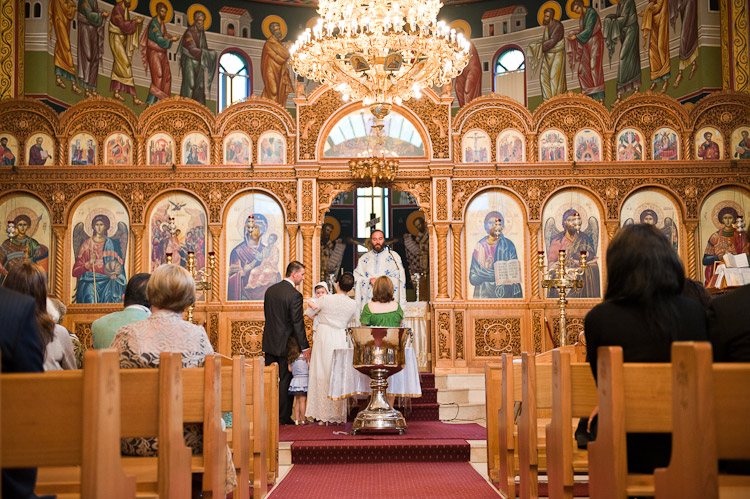
Greek Orthodox Church in Sydney. Source.
I was admitted into a Catholic school (without my parents mentioning I was of another Christian denomination) and began practicing their spirituality. I was both a Catholic and a part of the Greek Orthodox church and still am. For me, it isn’t a big deal.
I wanted to explore other people’s spirituality through the medium of Japanese anime films to identify how spirituality is conveyed to a Japanese audience as well as my own understanding. I studied religions in my HSC so I have quite a good understanding of basic principles and beliefs of a few different religious traditions.
So, I invested in an online streaming service to watch the highly-acclaimed anime film Your Name. If it is free, it’s for me. Interestingly enough, this Japanese anime film was released in Australian cinemas, breaking down cultural barriers and cultivating cultural and global flows. It has also broken multiple records and has become the number one animated film around the world even before it was dubbed.
This anime film has been dubbed in English, however, I wanted the ‘authentic‘ experience of the film (which is ironic due to my inability to understand Japanese so I have to resort to subbed) and did not want any meaning to be lost in translation (more irony considering the inconsistency of subtitles in anime). So I searched far and wide for a subbed version of the film which was more difficult than I thought it would be.
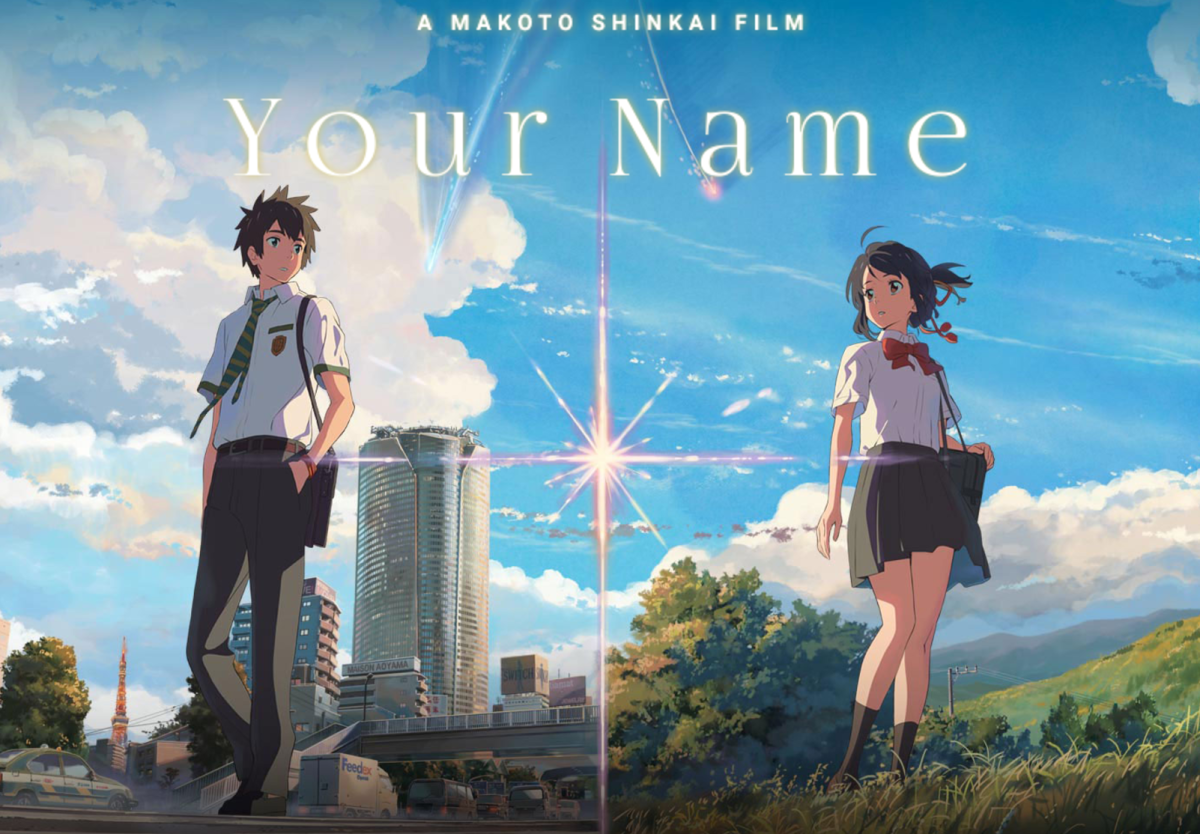
Your Name poster of film release in 2016. Source.
My experience with ‘Your Name’ and it’s relation to spirituality
Your Name is a film which revolves around a teenage boy (Taki) and teenage girl (Mitsuha) trying to meet each other after continuously switching bodies. Taki is a city boy with a job, friends and a single father. Mitsuha is from a country town which is isolated from the city, she lives with her sister and grandmother in their family shrine. This is after her father abandons her as well as the faith of her mother after her mother’s death. It all comes to the climatic pinnacle of the film where Mitsuha and Taki attempt to save a town and thousands of people from dying in a passionate love story which is abundantly filled with Japanese culture and spirituality.
Whilst watching the film there were cultural practices, rituals and traditions being undertaken by Mitsuha as her family owned a religious shrine. I understood that the Japanese spirituality revolved around either Buddhism or Shintoism. I assumed it was Shinto as there were no Buddha statues being worshiped.
The film also had a strong tie to an entity or notion called “Musubi” which upon further investigation (looking it up on my phone while trying to read the subtitles of the movie- it did not end well) turned out to be something quite interesting. An entity which resides within a Kami and all living things on Earth, a bond or knot in a relationship between all living things. It is described by Mitsuha’s grandmother “the cosmic knot between things” (an interesting plot point was the use of Mitsuha’s hair tie as a metaphor for the ties which Mitsuha and Taki had even though they transcended time. The physical nature of a hair tie and the supernatural nature of their situations was juxtaposed quite nicely in my opinion).
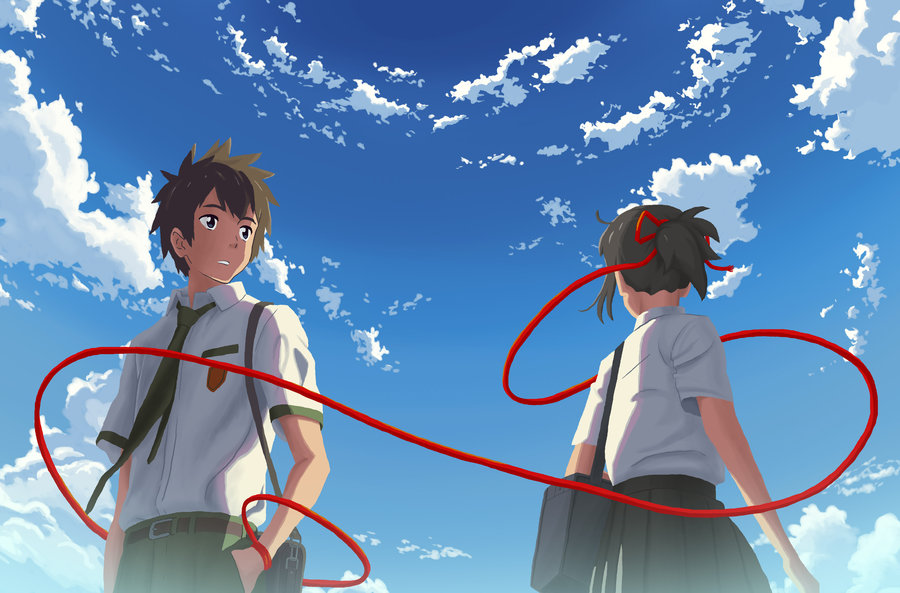
The hair tie is a symbol of transcending physical borders and Mitsuha extending her presence over time and space. Source.
It is this notion of space and time transcending the laws of reality that is something, I find, truly interesting. In modern day society, we do not question the immediate connections that we have with people from the past such as Facebook’s ‘On This Day’ feature which relates heavily to the plot of Your Name. This is conveyed in the way Taki and Mitsuha cannot remember their past meeting (they met in the past however, Taki didn’t remember meeting Mitsuha), however, are living out their present in succession with this past, being extremely significant to their relationship and the relationship they have with Musubi.
If I did not watch this film with the intent to study it’s relation to spirituality, I don’t believe I would have paid much attention to it. However, it has allowed me to appreciate the film so much more.
It is also interesting to note how the two did not communicate with each other through text, email or any social media throughout the film. They used a diary like technology in their phones as well as writing on each other’s faces to communicate. In a world where physical borders are broken apart by things such as the internet, this plot device may be defective and under-appreciated.
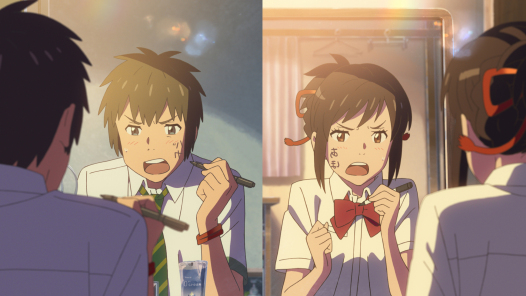
Funny scene where the two are frustrated at each other for acting differently in situations while body swapped. Source.
I watched this film in my room. By myself as I usually do when watching anime. It got me thinking about what the experience would be like in a packed cinema like Japan with other people who appreciated anime as a powerful art of storytelling.
I also related heavily to both characters feelings of anxiety and frustration when their bodies switched. This made me think about whether the creators of this film wanted to appeal to a western or oriental audience.
In the end, I ended up feeling satisfied with this film. It employed a beautiful love story which literally transcended time, made me cry and peaked my curiosity towards the spirituality of another culture. It is extremely compelling to watch a film without real people in it that has depth and is enjoyable to watch. What is even more interesting is how it allowed me to reflect on my own spirituality and journey to find out who I am which is similar to the journey of the characters in Your Name.
Your Name and the hypermediation of globalization
We are so familiar with these acute connections between the hyper mediation of globalisation and ourselves that we do not realise the reality of time. In the time of Japanese tradition, this technology that now assists us with day-to-day tasks would be classified as Kami. It would be a godlike entity, when in our reality, it is just a computer connected to the internet.
When watching the film, I was so enthralled and enveloped in the piercing presence of Japanese religion, tradition and spirituality which had a strict relation to family ties. As Mitsuha and her sister practiced the traditional dance of Kagura in their family’s shrine, I began to reminisce back to my own spirituality as a child and being frustrated with having to sit still. Having such a physical way of expressing faith exemplifies the way that I wish to live my life, breaking away from my past traditions much like Mitsuha’s father. The flowing movements of the Kagura dance evoked a sound from their body that was in cohesion with the music being played.
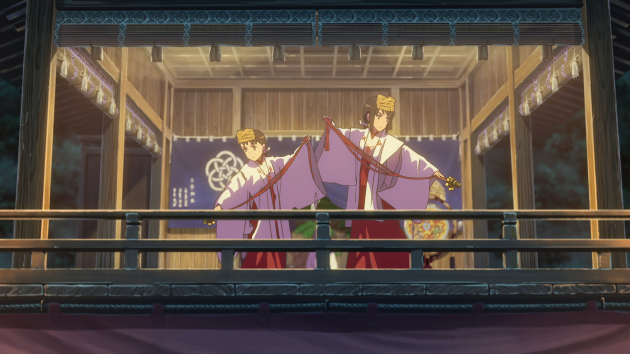
Mitsuha undertaking the family tradition of creating kuchikamizake. Source.
What I also found interesting is that the music being played was on a cd player. Wouldn’t the instruments used in such a traditional dance be played live? What is also quite ironic is that a cd player is now considered quite old in our modern society. Why didn’t they just use Spotify? Does this form of globalisation take away from the traditional spirituality of a ritual in modern Japan? Similarly while I was in school we would integrate technology into our faith to sing hymns and ceremonies. I guess it’s just easier to use technology then to be traditional.
I was also intrigued by Mitsuha having such a strong relationship between her sister and her grandmother and her grandmother’s affinity with faith. It is this affinity between faith and loss that is detrimental to an individuals character. Her father buckled after the faith failed to provide him with a good outcome, her grandmother believed it was meant for a reason. I believe this is a part of Musubi, and that time and connections will eventually co-exist with one another, much how I believe in my life that everything happens for a reason.
I believe I noticed this due to my own family not having an extremely strong relationship between us and our faith. We don’t go to church. We don’t really practice any beliefs or values. I believe I am agnostic. The lack of my faith allowed me to pick up on the sheer strength of Mitsuha’s in this film which was extremely confronting.
Conclusion
I will finish on the point that I want to discuss further in my later research. The whole premise of the Your Name film is the ‘body swapping’ between Mitsuha and Taki. Mitsuha’s grandmother references this as Mitsuha’s bloodline (as shrine maidens) having spiritual powers to connect with another person’s body in times of great need.
Exploring this part of the Shinto spirituality will be extremely interesting moving forward. How can a cartoon be so complex?
I was extremely satisfied and enjoyed this film, the key moments of my experience were:
- Mitsuha and her family practicing the Shinto religion and spirituality with Mitsuha’s grandmother guiding her grandchildren.
- The relationship between Taki and Mitsuha which transcends time without the aid of social media in an age of digital communication.
- How an anime can convey such emotional themes such as love, death and loss through two-dimensional characters.
- The correlation between the shinto faith, time and space while being conveyed through the medium of an anime.
~krisesandchrosses~
Spotify

This is honestly so interesting to me, as an avid anime watcher it intrigues me deeply to see someone explore spirituality in a medium that many people connect with ‘kids’, ‘cartoons’, or ‘porn’.
You go deeply into an explanation of this issue of spirituality and religion, and the visual medium of anime, which gives context to your experience. However, I wonder whether researching the topic first (if that is what you did, you may not have) has altered your ‘raw’ experience of the anime film.
This is only because my interpretation of the autoethnographic experience was to witness this medium/culture/media without any prior knowledge, but simply consume the content, and relate your thoughts of the experience.
I definitely feel that you could have focused a lot more on the experience itself, and how you made sense of it.
However, you did very well in relating your own background and cultural context into your understanding of the issue of spirituality within the film.
Perhaps you could have drawn further from the Ellis reading, and created more of a narrative from your experience, this reads a bit like an essay, especially with the ‘conclusion’, it is a hard line between the clinicalness of scientific explanation and research, and the ‘narrative truth’ of storytelling.
Overall though, I definitely got the feeling of an engaging topic that you are quite interested in, and which I can’t wait to see more of.
LikeLiked by 1 person